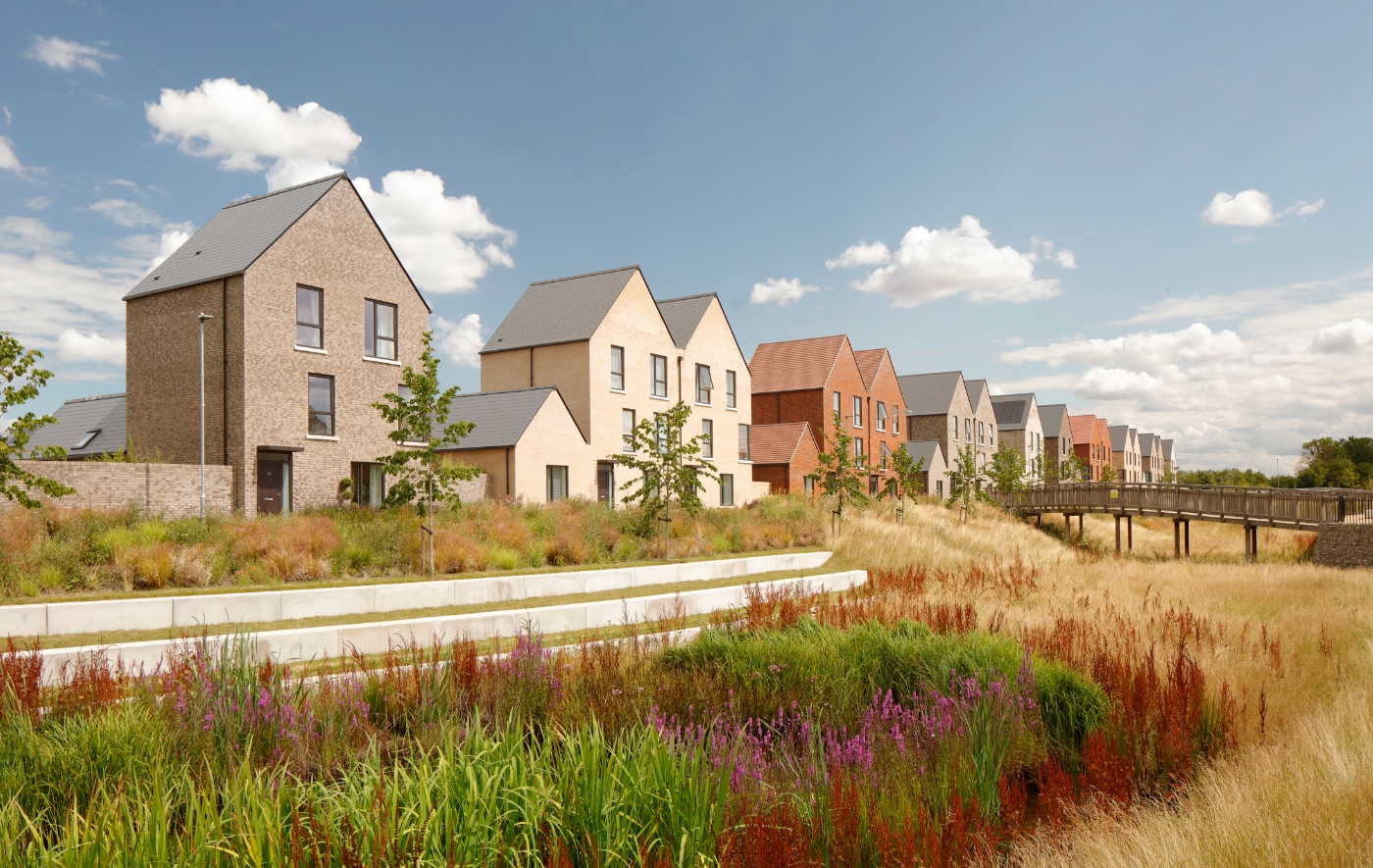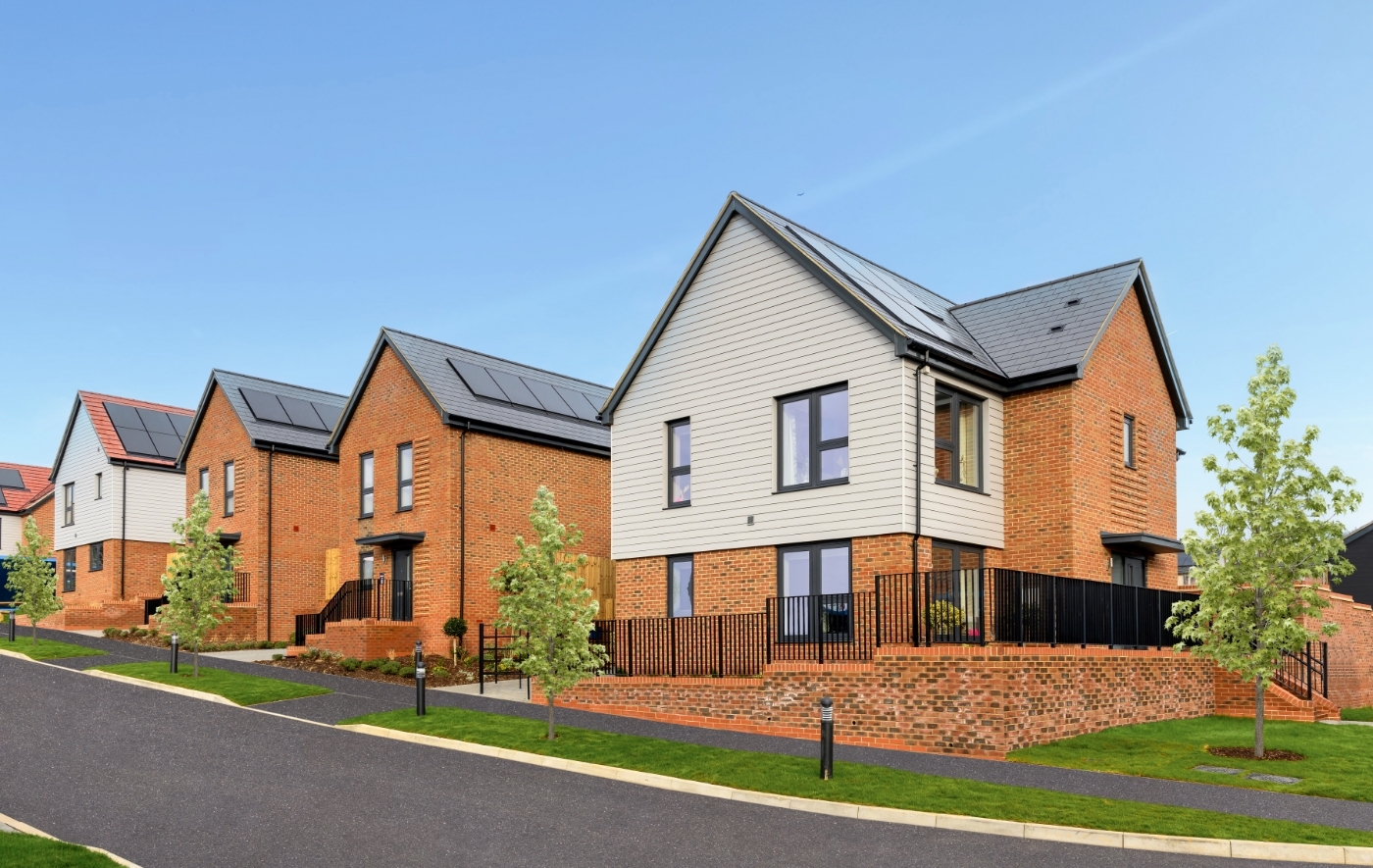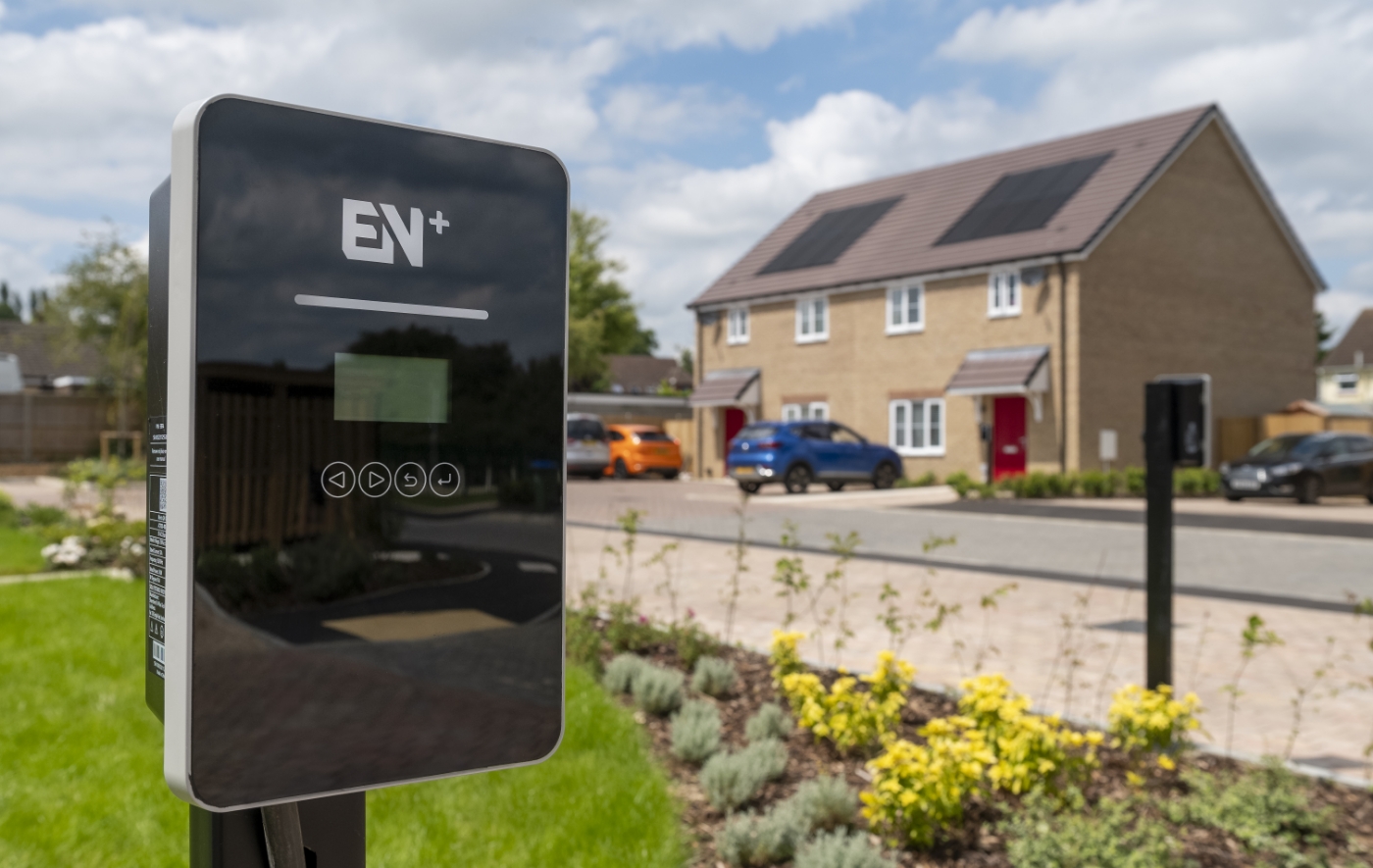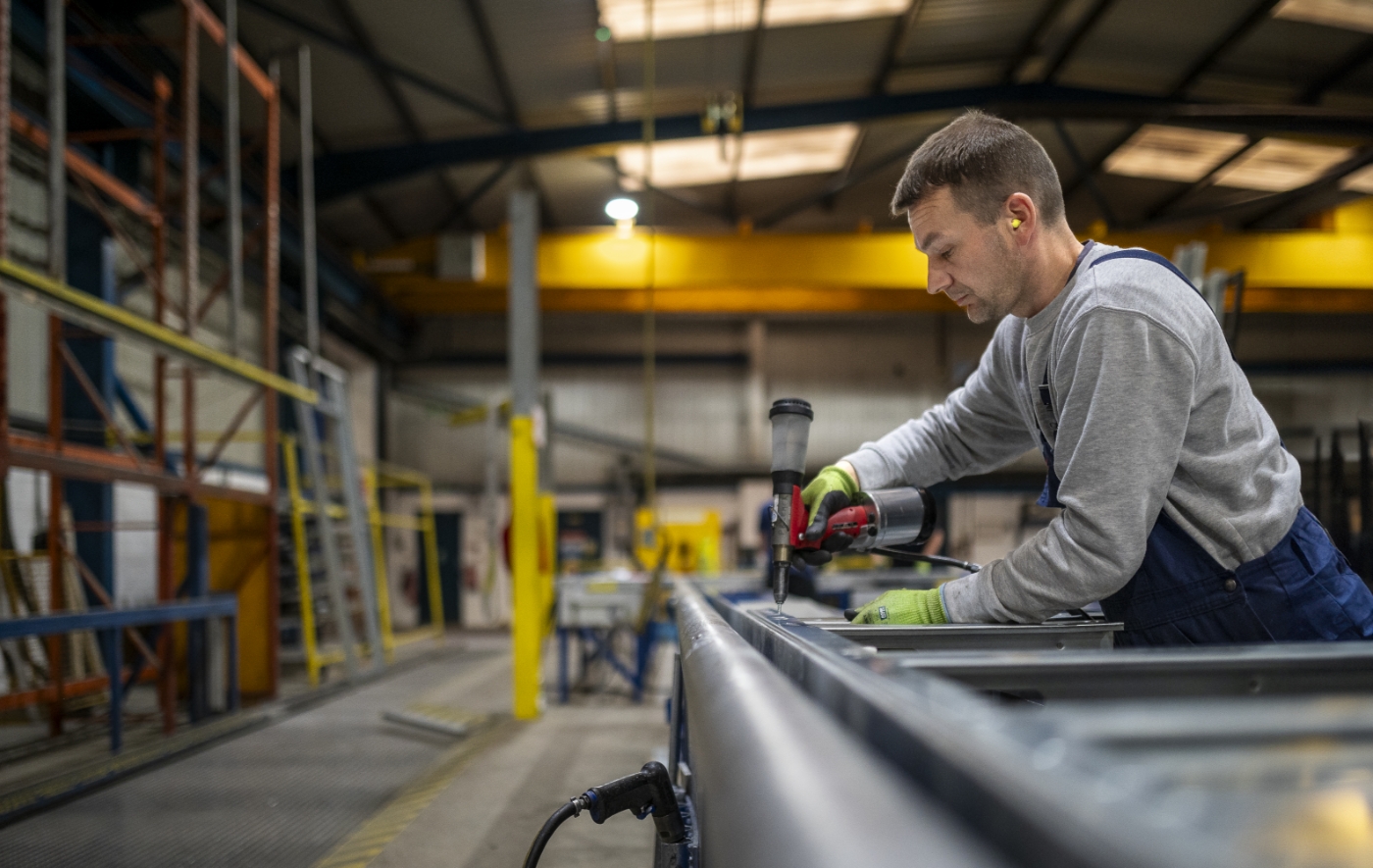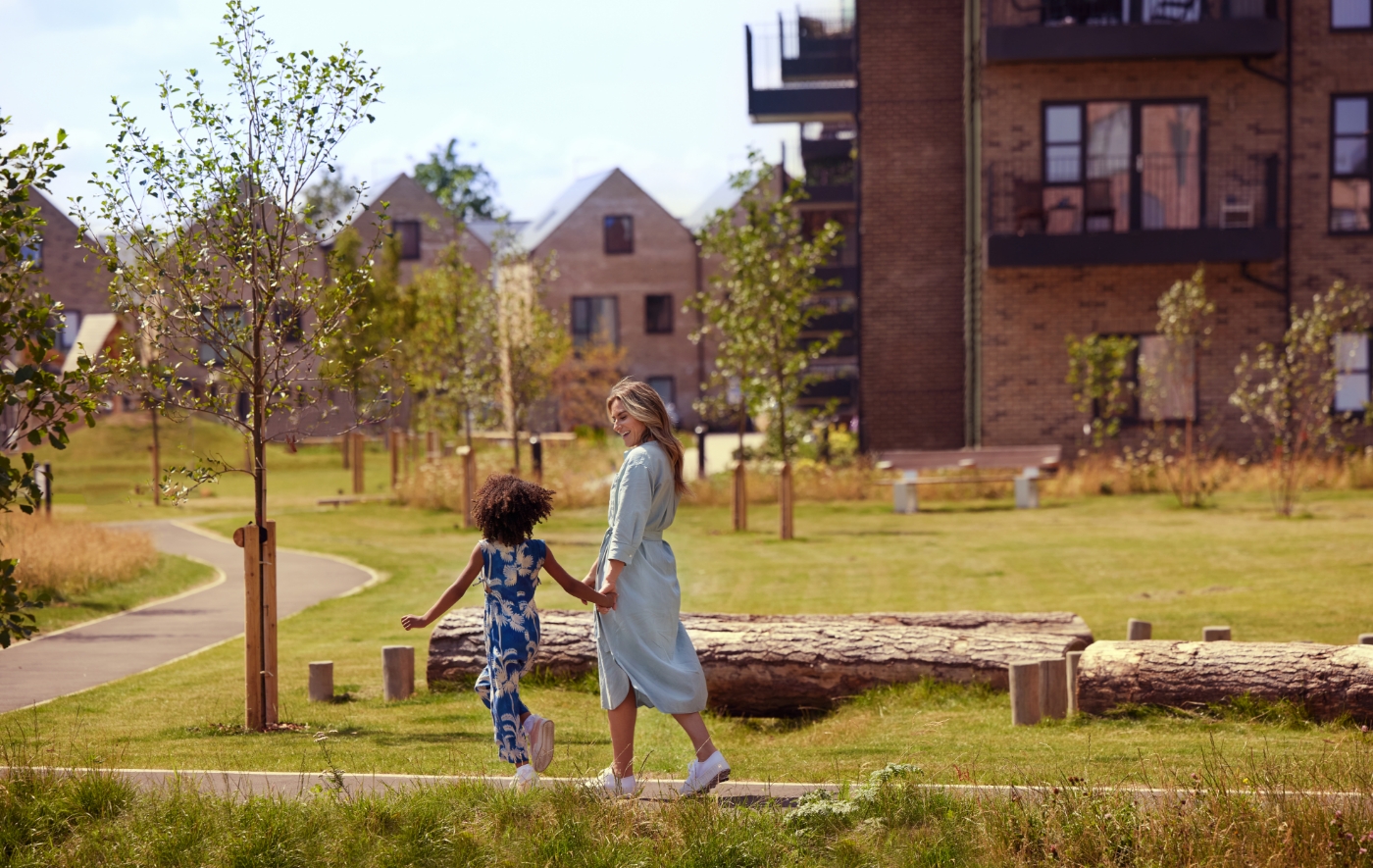Environmental, Social and Governance
We prioritise sustainable growth, putting the health of our planet at the heart of our decision-making. By focussing on key areas within our Environmental, Social Value, and Governance (ESG) framework, we are contributing to healthier, more sustainable communities and positioning ourselves for long-term success.
We understand the importance of collaboration and have actively partnered with key industry organisations like the Future Homes Hub (FHH) to collectively deliver on the new home sector’s climate and environmental goals.
Further reflecting this commitment, in 2022 we secured a £220m Sustainability-Linked Loan, the first of its kind in the housebuilding sector. This innovative financing mechanism ensures our current growth remains aligned with our sustainability objectives.
We’ve made significant progress across each of our ESG pillars and have published a comprehensive ESG strategy outlining our goals for 2025 and broader commitments up to the end of the decade in our 2030 Roadmap.
Our 2030 Roadmap and dedicated ESG pillars, focused on minimising environmental impact, maximising social value, and strengthening governance, represent our commitment to a Just Transition.
OUR ESG PILLARS
Environmental
- Creating net-zero carbon homes
- Taking care of our natural resources
- Reducing our environmental impacts
Governance
- Strategy and responsible business
- Reporting and assurance
- Future proofing
Strong governance is fundamental to securing the long-term sustainability of our business and we have implemented practices that champion transparency, accountability, and ethical conduct. Our Sustainability Leadership Group provides oversight and ensures the delivery of the ESG strategy, informed through our ESG pillars and the integrated 2030 Roadmap. Compliance with the emerging 2025 Future Homes Standard (FHS) is informing the most noteworthy changes to our Environmental and Governance pillars.
We maintain a corporate risk management framework and internal controls which ensures our compliance with relevant legislation, regulations, and ethical standards. We are also committed to building partnerships with suppliers who share our values and commitments.
Engaging our housing association partners on sustainability
In summer 2023, we launched our second double materiality review, re-surveying our housing association partners and Homes England to understand their evolving priorities across a range of metrics. The results of this analysis were presented to a group of stakeholders at a dedicated breakfast meeting held at RIBA, London, chaired by Ann Santry CBE, with Edward Lockhart-Mummery, Chief Executive Officer of the Future Homes Hub as our guest speaker.
Delivering Sustainable Living Through Collaboration
Zero Bills Homes at Hollymead Square
We now design with features that mitigate both physical and transitional climate change risks. These include enhancements to building superstructures and substructures, strategies to address overheating, the balancing of daylighting, and the use of emerging green energy technology, such as at Hollymead Square in Newport, Essex.
Here, we partnered with Octopus Energy and Clarion Housing Group to revolutionise sustainable living in the UK. Hollymead Square is a new residential development comprising 89 homes offering residents the benefit of ‘Zero Bills’ energy for a minimum of five years. It is the first development of its kind and scale in the UK.
All 89 homes, including affordable rent and shared ownership, are equipped with cutting-edge green technology.
Octopus Energy is an innovative energy supplier pioneering the Zero Bills proposition with smart technology and green energy solutions, and Clarion Housing Group is the UK’s largest social housing provider, dedicated to reducing emissions and offering affordable options.
All 89 homes, including 25 affordable rent and shared ownership, are equipped with cutting-edge technology, including solar panels for renewable energy generation, high-quality insulation for superior thermal efficiency, heat pumps for sustainable heating and hot water, and home storage batteries for power optimisation. These technologies are seamlessly integrated and optimised to ensure homes generate more energy than they consume, resulting in zero energy bills for residents.
Brighter future
We believe creating a healthier planet and better homes go hand-in-hand. We’ve set ambitious targets to shrink our environmental impact and carbon footprint. Through cutting-edge technology and innovative construction methods, we’re improving energy efficiency, minimising waste, and championing sustainable development.
The climate crisis demands immediate action, and we’re taking steps to reduce our carbon emissions and contribute to a more sustainable future. Our commitment is clear: achieving net zero carbon across Scopes 1 and 2 of our operations by 2030, alongside net zero operational carbon in the homes we build within the same timeframe.
This goal is bolstered by a comprehensive plan to increase our use of renewable energy sources, cut operational carbon emissions, and invest in sustainable technologies and practices.
With the 2025 FHS mandating a significant reduction in carbon emissions for new homes, we’re taking proactive steps to futureproof our developments.
This includes taking a fabric-first approach and pivoting to air-source heat pumps and away from fossil fuel boilers. Having committed to switching all pending planning applications away from using fossil fuels as early as 2021, the percentage of homes under construction across our portfolio that use renewables is currently 80% and rising. A progressive performance versus the sector, supported by our early adopter strategy.
80% of the homes we’re constructing use renewable energy.
We are futureproofing our new homes through climate change, adaptation, and resilience strategies. This includes incorporating sustainable urban drainage systems, subterranean engineering, and biodiversity net gain solutions.
We’ve successfully adopted and tested a range of certified Passivhaus designs, similar fabric-first approaches, and Active Homes, all demonstrating significant reductions in carbon emissions across various housing and apartment typologies and densities. By introducing innovative homes into our portfolio, we are promoting more sustainable construction practices and actively contributing to improved wellbeing for generations to come.
NextGeneration
The NextGeneration Sustainability Benchmark assesses the sustainability credentials of some of the largest 28 housebuilders in the country.
We are the highest performing privately held housebuilder in the NextGeneration Sustainability Benchmark.
In 2023, we consolidated our fifth-place position and improved our performance year-on-year by 18%. As a result, we continue as the highest performing privately held housebuilder in the benchmark, maintaining a healthy position and adding a silver award.
Performance in the benchmark is scored against 15 sustainability metrics. Notably, we scored equal to or above the benchmark average in nine of them, performing strongly in Governance, Environmental Site Management, Transport, and Health and Safety where we received top marks in each.
“Sustainability continues to be high on the agenda for UK homebuilders, with a seven-point average score increase observed on the NextGeneration Benchmark last year. Hill is accelerating beyond this with an increase of 18 points in 2023, demonstrating their commitment to delivering sustainable homes and places alongside their 2030 operational carbon net zero target.”
Iona Deacon, NextGeneration Initiative Lead, JLL
OFF-SITE construction
One of the ways we’re achieving our ESG goals is by increasing our off-site construction capabilities, in recent years adding two specialist manufacturers – Volumetric Modular Ltd and Fusion Steel Framing – to the Group.
Off-site construction allows us to create components with more precision and with a higher level of quality control.
Off-site is an approach to housebuilding that uses controlled factory environments to manufacture key components of a home. It offers numerous advantages, both in terms of efficiency and sustainability, and can lead to a better use of materials and a 50% reduction in on-site construction waste.
Less material waste and streamlined manufacturing lead to a lower embodied carbon footprint, the CO2 emissions linked to materials and their production.
It also minimises the construction phase, meaning less energy is used for temporary heating, lighting, and powering tools on site. Fewer deliveries of materials also lead to reduced traffic and healthier, safer streets for residents.
Off-site construction allows us to create components with more precision and with a higher level of quality control. This results in better insulation, tighter building envelopes, and minimal air leakage, all contributing to lower energy use in the finished homes.
Post-2025 strategy
We continue to collaborate with the FHH in developing its ‘Future Homes, One Plan’ and its two strategic foundations:
1) THE ROADMAP
Leading the conversation with government and expert bodies about the future regulatory standards required not just for 2025, but also from 2026-2030, and horizon-scanning from 2030-35, to enable the new homes supply chain to plan, invest and innovate efficiently in moving to higher standards.
2) THE SUSTAINABALITY PERFORMANCE FRAMEWORK
Developing a single set of metrics with housebuilders, Homes England, the NextGeneration Initiative and NHBC as well as lenders, local authorities, and the wider stakeholder community to reward early adoption of standards and best practice in line with the pathway of future regulation. Greg Hill, our Deputy Chief Executive sits on the FHH CEO Leadership Council to help lead the sector through this period of change.
